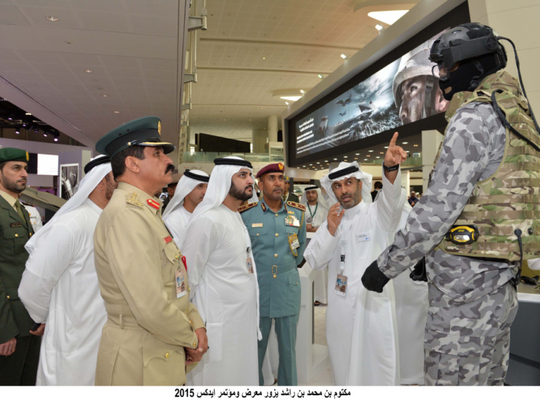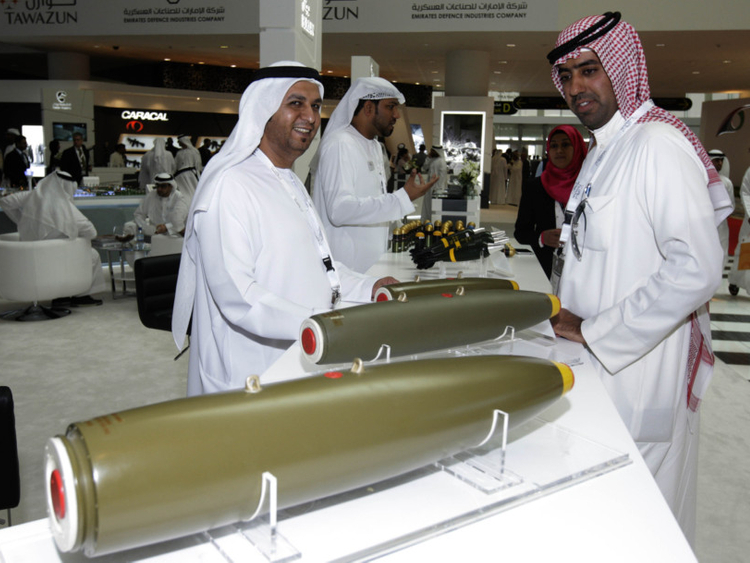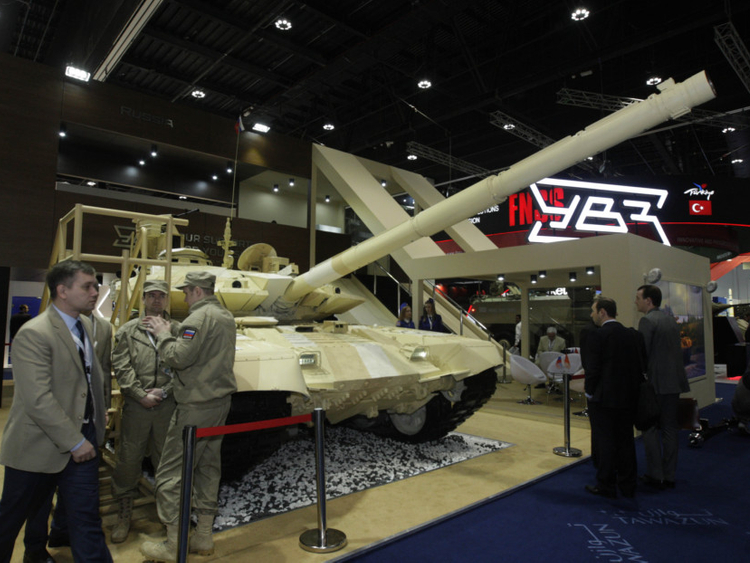
Abu Dhabi: Political unrest and the decline in oil prices in the region will not have a long-term impact on the defence industry, security experts in the capital said on Monday, at the 12th edition of the International Defence Exhibition (Idex).
However, current events have resulted in a greater demand for target identifying military capabilities in the Middle East.
“There have been changes in buying preferences such as the demand for intelligence, surveillance, and reconnaissance [ISR] capabilities and the US is being very quick in providing them. The Middle East is a very critical market and while some have become a little bit more prudent in spending, there has been no slowing down in terms of acquisitions,” said Paul Oliver, Boeing’s Mena (Middle East and North Africa) vice-president of international business development defence, space and security.
“In addition to the right capabilities, [customers] need the right training at the right place and they’re very interested in the long-term relationships for services and support for these products,” he added.
Similarly, Boeing has been doing increasingly well in the region with the UAE and Qatar being its top clients in the Middle East. “North America and China are both competing for number one in Boeing sales outside of the US and the Middle East is in third place,” Oliver said.
International sales as Boeing represent around 30 per cent of Boeing’s Defence, Space and Security’s business, equivalent to about $10 billion (Dh36.7 billion). The company sold 723 civilian aircraft worldwide, of which 51 were to clients in the Middle East.
“Between January 2014 and January of this year, nine Boeing 737-800s were sold to flydubai, 12 777-300ERs to Emirates Airlines and one 787-9 to Etihad Airways. The average of growth in passenger traffic is at 5.5 per cent but the UAE is seeing that number in double-digits,” said Jeff Johnson, President of Boeing Middle East.
The 20-year market outlook, from 2014-2033, predicts that the Middle East will be in need of about 2,950 new aeroplanes amounting up to about $640 billion.
“Meanwhile, defence equipment being sold in the Middle East is expected to grow by 15 per cent [over the same period],” he added.
Currently under development, the C-40A Combi, a civilian aircraft, is being adjusted to cater to military purposes such as the transportation of soldiers and goods. “This vessel will be very useful for humanitarian purposes including moving people and equipment,” Oliver said.













